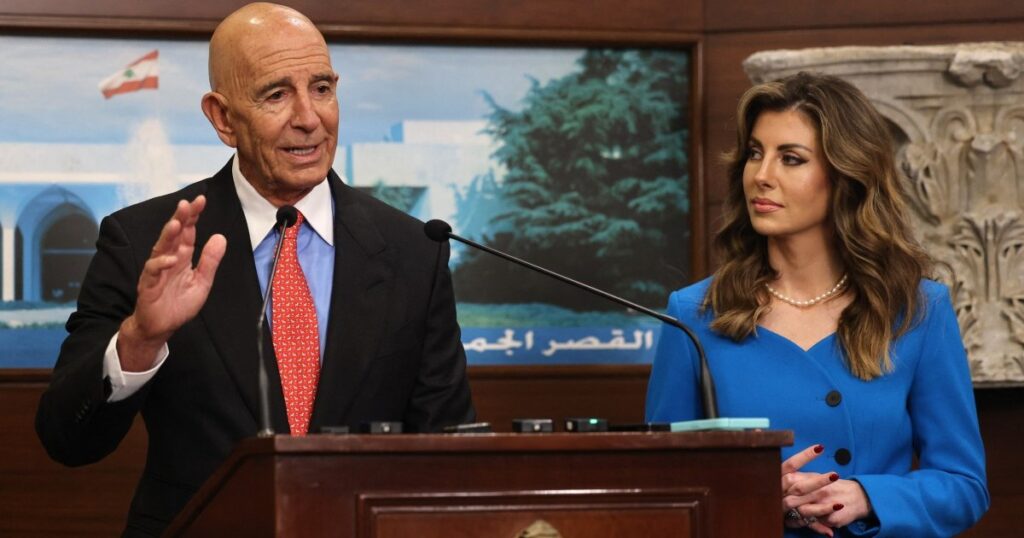TLDR;
Tom Barrack, the U.S. Ambassador to Turkey and Special Envoy for Syria, sparked outrage in Lebanon after telling journalists to “act civilized” during a press conference. Following a meeting with Lebanese President Joseph Aoun to discuss disarming Hezbollah, Barrack criticized reporters for shouting questions, linking their behavior to regional chaos. His remarks drew accusations of arrogance and colonial mentality. The Lebanese Presidency and Journalists’ Union condemned his comments, with the latter calling for a media boycott until he apologizes. Barrack’s statements were seen as reflective of Washington’s attitude toward the region. The U.S. State Department has not responded. The incident highlights tensions between diplomatic protocol and press freedom, resonating deeply in Lebanon.
US Diplomat’s Remarks to Lebanese Journalists Spark Outrage and Calls for Apology
A recent incident involving Tom Barrack, the United States Ambassador to Türkiye and Special Envoy for Syria, has ignited widespread criticism in Lebanon after he made controversial remarks to local journalists, urging them to “act civilized.” The comments have prompted demands for an apology and even a media boycott of the diplomat’s future events.
Barrack made the statements on Tuesday following a meeting with Lebanese President Joseph Aoun in Beirut. The discussion focused on plans for the disarmament of Hezbollah, a topic of significant sensitivity in the region. During a briefing with local media after the meeting, Barrack, who is of Lebanese descent, reprimanded journalists for shouting questions simultaneously. He appeared to link their behavior to broader regional conflicts.
“We’re going to have a different set of rules… please be quiet for a moment,” Barrack said. “And I want to tell you something, the moment this starts becoming chaotic, like animalistic, we’re gone. So, you want to know what’s happening? Act civilized, act kind, act tolerant, because this is the problem with what is happening in the region.”
“In cadence with your kindness, your interest and your thoughtful questions, we’ll give you responses,” Barrack added. “If that’s not how you’d like to operate, we’re gone.”
The remarks have sparked a fierce backlash in Lebanon and beyond. Many have accused Barrack of displaying arrogance and a colonial mindset. The Lebanese Presidency expressed regret over the comments, stating in a message on X that the government holds journalists in “full appreciation” and extends its “highest regards for their efforts and dedication in fulfilling their professional and national duties.”
The Union of Journalists in Lebanon has called for a boycott of future events involving Barrack until he issues a formal public apology. In a statement, the union described Barrack’s comments as “a reflection of an unacceptable superiority in dealing with the media and an implicit disdain for the essence of journalistic work.” It further criticized the remarks as showcasing “ingrained colonial arrogance towards the peoples of the region” and violating “basic diplomatic etiquette and the values that diplomacy should represent—chief among them respect for press freedom and the people’s right to knowledge.”
Speaking to Al Jazeera, Beirut-based columnist Mohamad Hasan Sweidan of The Cradle interpreted Barrack’s comments as indicative of Washington’s broader attitude toward the region. “Today, Tom Barrack is reminding us how they view people of the region by defining their actions as animalistic,” Sweidan said.
The US Department of State has not yet responded to requests for comment on the matter.


